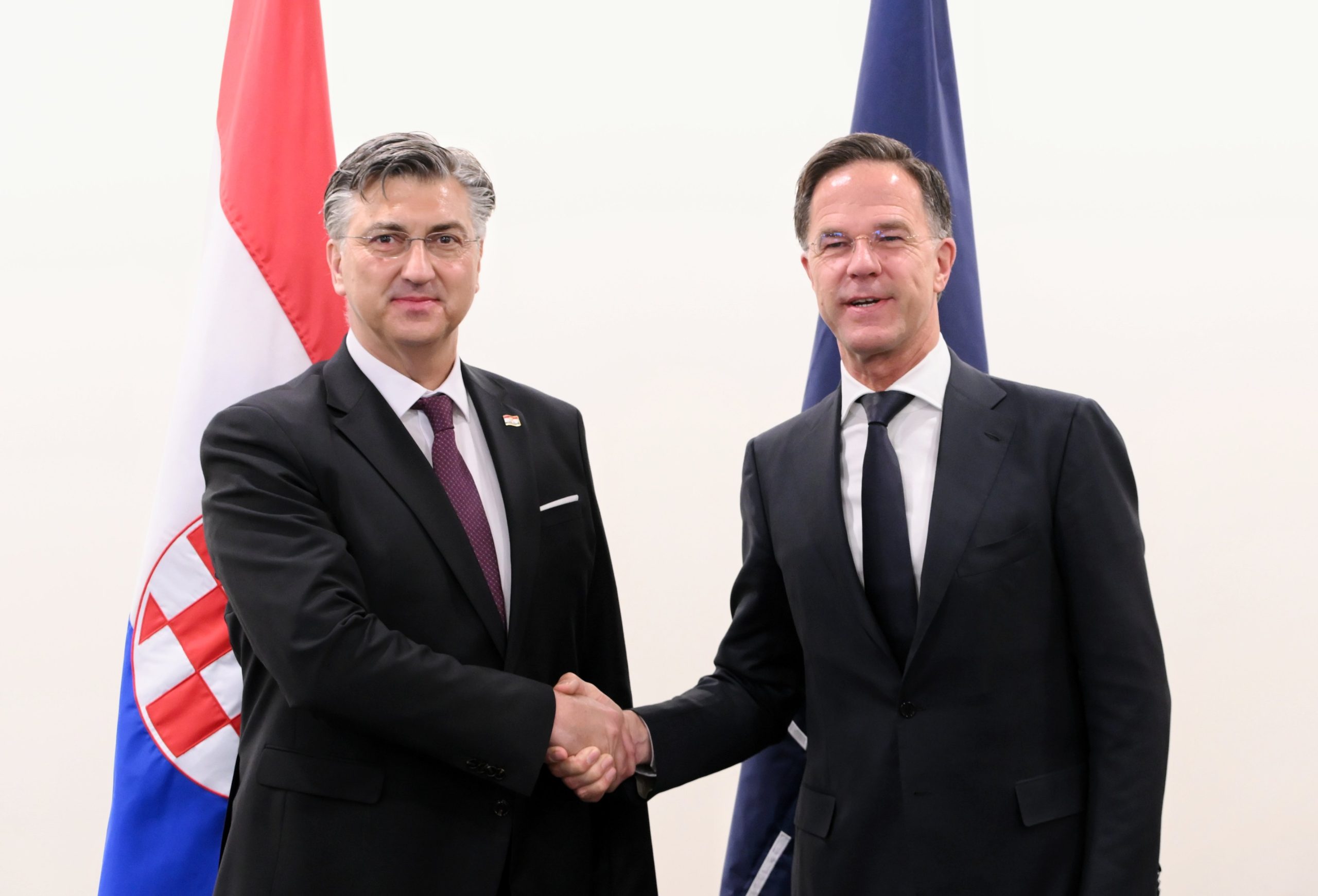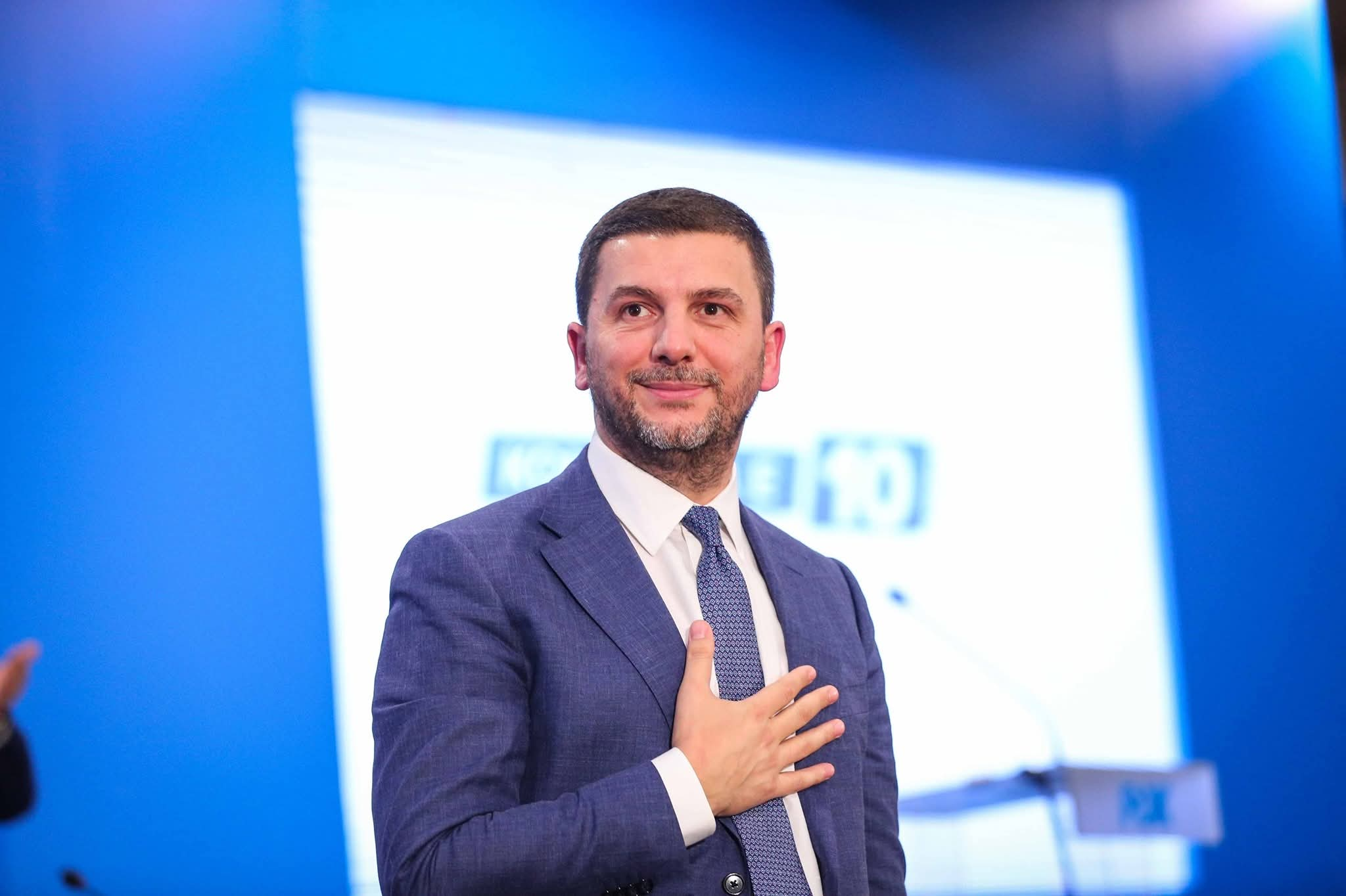Memli Krasniqi, leader of Kosovo’s main opposition party, the Democratic Party of Kosovo (PDK), announced his resignation on Tuesday, calling it a “moment for renewal” within the party and the country’s opposition landscape.
In a press conference in Pristina, Krasniqi said his decision came not as a reaction to recent political events, but as part of a longer reflection on the party’s need for change.
“A party that believes in development must also believe in renewal,” he told reporters. “A leadership that seeks change for Kosovo must have the courage to create space for change within itself.”
Krasniqi, who has led PDK since 2021, described his decision as an act of responsibility and love for the party. “This decision is not about fatigue or disappointment, but about love for my party and my country,” he said. “PDK is more than a political organization – it is an inheritance from those who fought for freedom, statehood, and dignity.”
Party unity and leadership transition
PDK, founded by former wartime leaders, has been Kosovo’s dominant political force for nearly two decades but has struggled to reclaim power since losing national elections to Prime Minister Albin Kurti’s Vetevendosje (Self-Determination) Movement in 2021.
Krasniqi emphasized unity and humility as essential for the party’s future. “A leader must know not only how to stand tall but also how to step aside with dignity,” he said.
PDK’s internal election for a new leader is scheduled for Monday, according to Klan Kosova.
Senior party figures quickly expressed gratitude for Krasniqi’s leadership. Sami Lushtaku, mayor of Skenderaj and a key PDK figure, said the resignation should mark “a new moment” for the party’s consolidation.
“PDK is a state-building party with a clear vision for Kosovo’s development,” Lushtaku wrote on Facebook. “This decision should strengthen and unify us.”
Bedri Hamza seen as potential successor
PDK deputy chairman Bedri Hamza, a former finance minister and one of the party’s most prominent figures, praised Krasniqi’s integrity and leadership during “difficult times.”
“I cannot find words to thank my friend Memli Krasniqi for his great contribution,” Hamza said. “Today more than ever, we must remain united and determined in facing the challenges ahead.”
Krasniqi has publicly endorsed Hamza as both the next party leader and PDK’s candidate for prime minister in future elections, signaling an orderly transition rather than internal turmoil.
Analysts see opening for broader opposition reset
Political analyst Shemsi Jashari said Krasniqi’s resignation could inject “new energy” into both PDK and Kosovo’s opposition scene.
“This step may mark the beginning of a phase of renewal and internal consolidation,” Jashari told Gazeta Blic. “It reinforces the perception of PDK as a responsible force with a functioning democratic culture.”
He added that the move increases pressure on other opposition parties to reflect and reorganize. “Krasniqi’s resignation could serve as a catalyst for broader opposition cooperation and a more balanced political competition,” Jashari said.
Krasniqi’s departure comes amid declining local election results for PDK and ongoing challenges in presenting a unified alternative to Kurti’s increasingly dominant ruling movement. His decision, framed as an act of renewal rather than defeat, may test whether Kosovo’s once-hegemonic party can reinvent itself for a new generation of voters.



